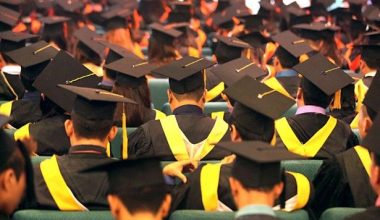Are you interested in studying at a Japanese High School? As the academic year approaches, students worldwide are considering the best educational options. Japanese high schools are an excellent choice for those who want to experience a unique culture and receive a top-notch education.
Japan is known for its rigorous education system, and its high schools are no exception. Japanese high schools offer a comprehensive education, including academics, extracurricular activities, and cultural experiences. In addition, Japanese high schools have a strong focus on discipline, which helps to instil valuable life skills such as time management and responsibility.
But with so many high schools to choose from, it can be overwhelming to decide which is the best fit for you. That’s why we’ve compiled a list of the best Japanese high schools for all students in 2023. Whether you’re a Japanese native looking for a prestigious school or an international student looking for an immersive cultural experience, a high school on this list will meet your needs.
This blog post closely examines the top Japanese high schools, including their unique features, strengths, and academic programs.
Table of contents
- What is High School Called in Japan?
- What is the Age Limit for a Japanese High School?
- 20 Best Japanese High Schools for All Students in 2023
- Tokyo Metropolitan Hibiya High School
- Fukuoka Senior High School
- Keio Senior High School
- Meiji Gakuin Senior High School
- Okayama Prefectural Okayama High School
- Hiroshima Prefectural Hiroshima Jogakuin Senior High School
- Nagoya International Senior High School:
- Hokkaido Sapporo Int’l High School
- Osaka International School
- Shizuoka Prefectural Shimizu Commercial High School
- Tohoku International School
- Kanagawa Prefectural Kamakura High School
- Kyoto International School
- Hyogo Prefectural Kakogawa High School
- Kanto International Senior High School
- Tohoku Gakuin Senior High School
- Saitama Prefectural Saitama Toda High School
- Nara Prefectural Nara High School
- Kyoto Prefectural Rakuhoku High School
- International Christian University High School
- Can International Students Attend a Japanese High School?
- Can You Work While In High School in Japan?
- FAQS
- Discover More
- References
What is High School Called in Japan?
In Japan, high school is called “koukou” (高校), which is short for “koutou gakkou” (高等学校). The word “koukou” literally means “high school,” It refers to the three-year education program for students aged 15-18 after completing compulsory education.
In Japan, high school education is an integral part of a student’s academic journey, and it’s often seen as a crucial step towards attending a top university or pursuing a successful career. High school students in Japan typically study various subjects, including the Japanese language, mathematics, science, social studies, foreign languages, and physical education.
Additionally, many high schools in Japan offer extracurricular activities such as sports teams, music clubs, and cultural events, which provide students with opportunities to develop various skills and interests.
What is the Age Limit for a Japanese High School?
The age limit for Japanese High School is based on your academic progress.
In general, students in Japan attend High School for three years, from the age of 15 to 18. However, it’s not uncommon for some students to repeat a year of high school or take a gap year, which means they may graduate slightly older.
You may also find specialized high schools in Japan offering programs beyond the traditional three-year curriculum. Therefore, the age limit for Japanese high schools can range from 15 to 20 years old or even older in some cases.
Discover also: How Many Weeks Are in A Typical School Year in 2023?
20 Best Japanese High Schools for All Students in 2023
Some of the top Japanese High Schools are as follows:
- Tokyo Metropolitan Hibiya High School
- Saitama Sakae High School
- Hiroshima Jogakuin University Senior and Junior High School
- Tokyo Metropolitan Koishikawa Secondary Education School
- Okinawa Prefectural Koza High School
- Tokyo Metropolitan Musashi Senior High School
- Hokkaido Sapporo Miyanomori International School
- Fukuoka International School
- Osaka International School
- Shizuoka Prefectural Shimizu Commercial High School
- Tohoku International School
- Kanagawa Prefectural Kamakura High School
- Kyoto International School
- Hyogo Prefectural Kakogawa High School
- Nagasaki Prefectural Nagasaki Nishi High School
- Tohoku Gakuin Senior High School
- Saitama Prefectural Saitama Toda High School
- Nara Prefectural Nara High School
- Kyoto Prefectural Rakuhoku High School
- International Christian University High School
Tokyo Metropolitan Hibiya High School
Hibiya High School is a public Japanese high school in Tokyo known for its strong academic program, particularly in science and mathematics.
The School has a selective admission process, admitting only the top students from the Tokyo metropolitan area. The School has many extracurricular activities, including music, sports, and cultural clubs, and is known for its strong sense of community among students and faculty.
Fukuoka Senior High School
Fukuoka Senior High School is a public high school in Fukuoka with a long history of academic excellence.
The School is known for its rigorous curriculum, which emphasizes critical thinking and problem-solving skills, and its high standards for student achievement. Fukuoka Senior High School has produced many notable alums, including several politicians and business leaders.
Keio Senior High School
Keio Senior High School is a private high school in Tokyo affiliated with Keio University, one of Japan’s top universities. The School is known for its rigorous academics and focus on developing critical thinking and analytical skills. The School also emphasizes the importance of community service and encourages students to get involved in volunteer work and other activities outside of the classroom.
Meiji Gakuin Senior High School
Meiji Gakuin Senior High School is a private Japanese high school in Tokyo with a long history of academic excellence. The School’s rigorous educational program prepares students for university studies, and it is known for its strong emphasis on values such as integrity, responsibility, and respect.
Gakuin Senior High School has many extracurricular activities, including sports, music, and cultural clubs, encouraging students to explore their interests outside the classroom.
Okayama Prefectural Okayama High School
This public high school in Okayama has a solid academic reputation, particularly in science and mathematics. The School offers a rigorous curriculum that prepares students for university studies and also has a wide range of extracurricular activities, including sports, music, and cultural clubs.
Okayama High School is known for its sense of community among students and faculty and its commitment to academic excellence.
Hiroshima Prefectural Hiroshima Jogakuin Senior High School
Jogakuin Senior High School is a private high school in Hiroshima that focuses on preparing students for university studies, particularly in the humanities.
The School offers a rigorous academic program emphasizing critical thinking, and analytical skills and a wide range of extracurricular activities, including sports, music, and cultural clubs. Hiroshima Jogakuin Senior High School is known for its strong sense of community and its commitment to social responsibility.
Nagoya International Senior High School:
This School is a public high school in Nagoya that focuses on international education. The School offers an international curriculum that prepares students for global careers and has various extracurricular activities, including sports, music, and cultural clubs.
Nagoya International Senior High School is known for its commitment to diversity and emphasis on developing global citizenship skills.
Hokkaido Sapporo Int’l High School
Sapporo International High School works with an international curriculum that focuses on developing global citizenship skills.
The School emphasizes the importance of cultural exchange and has a wide range of extracurricular activities, including sports, music, and cultural clubs. Hokkaido Sapporo International High School is known for its commitment to diversity and its emphasis on preparing students for
Osaka International School
This international private Japanese High School in Osaka offers an international English curriculum. The School educates students from preschool to grade 12, emphasizing English language instruction and an international curriculum.
Osaka International Schools’ curriculum is designed to provide a well-rounded education for students, focusing on academic excellence, critical thinking, and social responsibility. The School offers the International Baccalaureate (IB) Programme, recognized worldwide for its rigorous academic standards and holistic approach to education.
In addition to academics, OIS places a strong emphasis on extracurricular activities, including sports, music, and drama. The School has a range of sports teams, including basketball, soccer, and volleyball. The music and drama programs are also highly regarded, with students regularly performing in concerts and plays.
The School’s fees for the academic year 2023-2024 range from 1,080,000 yen for preschool to 2,812,500 yen for grade 12, which includes tuition, textbooks, and extracurricular activity fees.
Shizuoka Prefectural Shimizu Commercial High School
This Commercial High School is a public school in Shizuoka specializing in business education. The School offers a rigorous curriculum in accounting, economics, and other business-related subjects. It has many extracurricular activities, including a business club and a student-run store.
See also: What are the Different Methods of Quality Control in Education in 2023?
Tohoku International School
Tohoku International School is a private high school in Sendai that offers an international curriculum in English. Established in 2002, the School educates students from kindergarten to grade 12.
The School’s curriculum is based on the International Baccalaureate (IB) programme, recognized worldwide. The School offers the Primary Years Programme (PYP), Middle Years Programme (MYP), and Diploma Programme (DP). A wide range of extracurricular activities, including sports, music, and art, complements the School’s strong academic program.
The School’s fees for the academic year 2023-2024 are 2,840,000 yen per year for grades 1-5, 3,540,000 yen per year for grades 6-8, and 3,950,000 yen per year for grades 9-12. These fees include tuition, school materials, and extracurricular activity fees.
Kanagawa Prefectural Kamakura High School
Kamakura High School is a public high school in Kanagawa that offers a rigorous humanities and social sciences academic program. The School is known for its strong academic reputation and has many extracurricular activities, including sports, music, and cultural clubs.
The School’s fees for the academic year 2023-2024 are 200,000 yen per year, which includes tuition and school materials.
Kyoto International School
Kyoto International School is an excellent choice for students who want a high-quality education in a supportive and diverse environment. A private high school in Kyoto, KIS offers an international curriculum in English. The School was established in 1957 and provided education for kindergarten through grade 12.
The School’s curriculum is based on the International Baccalaureate programme, which provides a well-rounded education that prepares students for university studies and future careers. The School also offers a variety of extracurricular activities, including sports, music, and drama.
The school fees for the academic year 2023-2024 are as follows: for students in grades 1-5, the annual tuition fee is 2,120,000 yen, while for students in grades 6-12, the yearly tuition fee is 2,300,000 yen. There are also additional fees for uniforms, books, and extracurricular activities.
Hyogo Prefectural Kakogawa High School
Kakogawa High School is a public high school in Hyogo that offers a rigorous academic program in science and mathematics. The School is known for its strong academic reputation and has many extracurricular activities, including sports, music, and cultural clubs.
Kanto International Senior High School
Kanto International Senior High School is a private international high school in Tokyo, Japan. The School offers an American-style education with a diverse student body of students from over 30 countries.
The School’s curriculum is well-balanced, strongly emphasizing academics and extracurricular activities. The School offers various subjects, including mathematics, science, language, and social studies. The School also offers Advanced Placement courses, preparing students for university studies in Japan and overseas.
In addition to academics, the School strongly focuses on extracurricular activities, including sports, music, and drama. The School has a well-established sports program, with basketball, soccer, volleyball, and swimming teams. The music and drama programs are also highly regarded, with students regularly performing in concerts and plays.
The School’s fees for the academic year 2023-2024 are 2,070,000 yen per year, which includes tuition, school materials, and extracurricular activity fees. However, financial aid is available for students who demonstrate financial need.
Tohoku Gakuin Senior High School
TG Senior High School is a private high school in Sendai. It is an excellent school that provides students with a well-rounded education. The School’s strong academic program and extracurricular activities help students develop the skills and knowledge they need to succeed in their future endeavours. The institution’s supportive community and highly qualified teachers make it an ideal place for students to learn and grow.
TG Senior High School’s fees for the academic year 2023-2024 are 1,144,000 yen per year, which includes tuition, school materials, and extracurricular activity fees. However, you can also access financial aid if you demonstrate financial need.
Saitama Prefectural Saitama Toda High School
Saitama Toda High School is a public Japanese high school in Saitama. The high school strongly emphasizes research and project-based learning, which helps students develop critical thinking and problem-solving skills.
Saitama Toda High School strongly focuses on extracurricular activities, including sports, music, and drama. The School has a well-established sports program, with basketball, soccer, volleyball, and baseball teams. The music and drama programs are also highly regarded, with students regularly performing in concerts and plays.
This institution has a supportive community of teachers, staff, and parents who work together to create a positive learning environment for all students. The School has a reputation for producing well-prepared graduates for university studies and successful careers in various fields.
Nara Prefectural Nara High School
Nara High School is a public high school in Nara that offers a rigorous academic program in humanities and social sciences. The School is known for its strong academic reputation and has many extracurricular activities, including sports, music, and cultural clubs.
Kyoto Prefectural Rakuhoku High School
Rakuhoku High School is a prestigious institution that offers a challenging academic program in a supportive environment. It provides students with a unique educational experience that prepares them for success in a globalized world.
Kyoto Prefectural Rakuhoku High School, established in 1961, has a long history of providing quality education to students in the region. The School’s curriculum is well-balanced, focusing on academics and extracurricular activities. The teachers are knowledgeable and dedicated to helping students succeed in their studies.
KPR High School has a robust academic program with various subjects, including mathematics, science, and languages. They also offer specialized courses such as the Information Technology Course, which prepares students for careers in the technology industry.
International Christian University High School
This is a private high school located in Koganei, Tokyo, Japan. It was established in 1953 as part of the International Christian University (ICU), known for its English-language liberal arts education.
The high school’s unique curriculum emphasises critical thinking, creativity, and global perspectives. The classes are in English, with Japanese language classes also available for international students. The School has a diverse student body with students from different nationalities and cultural backgrounds.
ICU High School offers a rigorous academic program in various subjects, including humanities, social sciences, and natural sciences. It also provides advanced courses such as the International Baccalaureate Diploma Programme (IBDP), recognized by universities worldwide. The School strongly focuses on extracurricular activities, including sports, music, drama, and community service. It also offers study abroad programs that allow students to experience different cultures and develop their language skills.
The School has a reputation for producing well-prepared graduates for university studies in Japan and overseas. Many of its alums have studied at top universities in Japan and abroad and pursued successful careers in various fields.
Can International Students Attend a Japanese High School?
Yes, a foreigner can attend a Japanese high school. However, there are specific requirements and procedures you may need to follow.
Firstly, you must obtain a student visa to enter Japan for educational purposes. The visa application process involves submitting various documents, such as a certificate of enrollment from a Japanese high school, a certificate of financial support, and a passport.
Secondly, you must apply to a Japanese high school and go through the admission process. The admission process may include taking an entrance exam and submitting academic transcripts.
Thirdly, you must be able to speak, read, and write in Japanese at a level sufficient to keep up with the coursework. Most high schools in Japan use Japanese as the primary language of instruction, so it’s essential for you, as an international student, to have a good command of the language.
It’s worth noting that high school education in Japan is not free for international students, and tuition fees can be quite expensive. You may also face additional challenges, such as cultural differences and adjusting to a new school system.
Find out: Best Online Colleges That Pay You to Attend in 2023
Can You Work While In High School in Japan?
In Japan, high school students can work part-time while attending School, but some regulations limit the number of hours and types of jobs.
According to the Labour Standard Act, high school students in Japan can work up to 28 hours per week during school holidays and up to 8 hours per day during school breaks. During school days, you can work up to 2 hours per day if you have parental consent.
Regarding the jobs you can do as a high school student, there are restrictions on working in specific industries, such as entertainment, nightlife, and work involving hazardous materials or heavy machinery.
Also, working while attending high school in Japan can be challenging, as it requires balancing schoolwork and work responsibilities. Working students may also have less time for extracurricular activities, hobbies, and rest, impacting their overall well-being.
Therefore, while you can work part-time in Japan, it’s essential to carefully consider the potential impact on your academic and personal lives before deciding to take on a job.
FAQS
Some of the most well-known high schools in Japan are:
Tokyo Metropolitan Hibiya High School
Kaisei Academy
Koishikawa Secondary School
Keio Senior High School
Saitama Prefectural Urawa High School
Seiryo High School
Sendai Ikuei Gakuen High School
Okayama Prefectural Okayama High School
Hiroshima Prefectural Hiroshima Jogakuin High School
Kogakuin University High School
In Japan, a 16-year-old student should be attending the second year of high school. High school education in Japan typically consists of a three-year program, starting from the age of 15 until 18 years old. The second year of high school in Japan is known as “ninen” (二年), which translates to “second year” in English.
During the second year of high school, students in Japan typically continue their studies in various academic subjects, including Japanese language, mathematics, science, social studies, foreign languages, and physical education. They may also participate in extracurricular activities such as sports teams, music clubs, and cultural events.
However, the Japanese school year starts in April and ends in March of the following year, with a summer break from late July to early September and a winter break from late December to early January. Therefore, a 16-year-old student in Japan would be in the second year of high school from April to March of the following year.
Discover More
- What Are the Best Med School Bootcamps in 2023?
- 10 Best Associate Degrees in 6 Months Online | 2023
- BMAT Universities In 2023 | 10 Best BMAT Schools in the UK
- Best MBA Colleges in Canada – Top Universities, Courses, Cost in 2023
References
- Savvy Tokyo – Japanese High School
- Standard Labour Acts – Japanese Standard Labour Acts
- JCIs Member School– Council of Approved Schools





